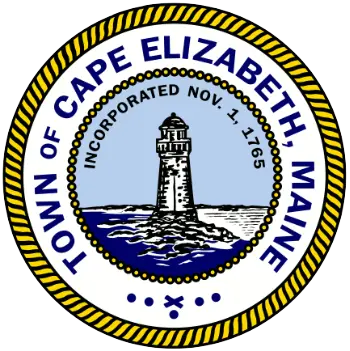Published on October 23, 2024

Town of Cape Elizabeth - Public Works Department – Community Forestry
Fall / Winter 2024
Trees along our roadways, public lands and town forests are important environmental assets for Cape Elizabeth. Our goal is to keep our trees and forest healthy by sharing information.
Tree Alerts – Active tree concerns for the Town of Cape Elizabeth
STORM DAMAGED TREES – Reminder: Severe weather events caused considerable tree damage last Winter & Spring. Always good to do a follow up inspection this Fall once the foliage is off the trees.
Emerald Ash Borer (EAB) is now the top tree threat in the Town of Cape Elizabeth. It has been actively found throughout the town typically causing mortality in three years once infected. Inspect Ash trees for signs of EAB, see web links below. It’s not too late to consider systemic tree injection preventative treatment on healthy high value Ash trees for next Spring. This pest can be treated by commercial arborists with an estimated effect of three years. Review these helpful EAB web links from the Maine Forest Service:
Hemlock Wooly Adelgid (HWA) – Our native Eastern Hemlock is under serious threat both in residential neighborhood landscape setting and our town woodlands. Recommendations include inspecting Hemlock trees for white cottony adelgids under the needles, this pest can be treated by commercial arboriculture firms and biocontrol options are available for Hemlock woodlands with advanced notice.
Bio-control elements have been released at Winnicks Woods in 2023.
Hemlock Woolly Adelgid In Maine : Forest Health & Monitoring: Maine Forest Service: Maine DACF
Beech Leaf Disease (BLD) - Beech Leaf Disease has been found in mid-coast Maine and greater Portland. At this time, it is on the watch here in Cape Elizabeth. It affects both native American Beech and non-native European Beech trees. ‘Be on the lookout’. See info link and report sightings:
Beech Leaf Disease : Forest Health & Monitoring: Bureau of Forestry: Maine DACF
Winter Moth - The Town of Cape Elizabeth and its residents have waged a multi-year battle against Winter Moth. Last year we received only sporadic reports of Winter Moth. Tree banding, treatments and bio-controls hopefully reduced this pest. ‘Be on the lookout for night time moth flight in late November around porch lights.’ (turn them off) Many mature Oak trees were damaged in previous WM cycles over the past decade, commercial tree harvests helped but many dead Oak trees remain on private woodlands / open spaces. For more information s:ee web Maine Forest Service web link:
Winter Moth: Forest Health & Monitoring: Maine Forest Service: Maine DACF
FMI, please visit our Tree Maintenance page.
